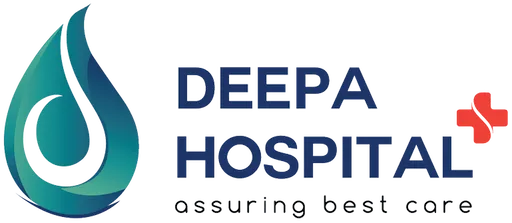At Deepa Hospitals, we believe effective medication management for Chronic Kidney Disease (CKD) plays a foundational role in supporting kidney function and enhancing patients’ quality of life. CKD requires precise medication routines to manage symptoms, control blood pressure and blood sugar, and ultimately protect the kidneys. Understanding how medications work individually and together can make a world of difference. Here, we provide strategies for managing CKD medications effectively, empowering patients to maintain long-term kidney health.
What is CKD?
Chronic Kidney Disease (CKD) gradually impairs the kidneys’ ability to filter out toxins and excess fluids, leading to a buildup of waste products in the body. Managing CKD involves many careful steps, including medication management, to prevent worsening kidney damage.
Key Points on CKD:
Early Stages: CKD often has no visible symptoms.
Primary Causes: Hypertension and diabetes are the most common contributors.
Additional Risks: CKD heightens the likelihood of heart disease and other systemic issues.
With a proactive approach to medication, patients can better protect their kidneys and enhance their well-being.
Why is Medication Management Essential in CKD?
Managing CKD with medications requires a holistic approach that covers controlling blood pressure, stabilizing blood sugar, and reducing cholesterol. Each medication plays a role, and when taken correctly, these can slow down CKD progression and improve daily functioning. For patients at Deepa Hospitals, our specialists tailor medication plans that align with individual health needs and disease stages.
Commonly Prescribed Medications for CKD:
ACE Inhibitors: Reduce blood pressure and protect the kidneys.
ARBs: An alternative to ACE inhibitors for those with sensitivities.
SGLT2 Inhibitors: Help regulate blood sugar and slow kidney decline.
Our goal at Deepa Hospitals is to ensure CKD patients receive comprehensive medication guidance for optimal health.
ACE Inhibitors: The Dual Benefits
ACE inhibitors are frequently prescribed for CKD patients due to their dual action on blood pressure and kidney protection. These medications lower blood pressure by widening blood vessels, thus reducing the heart’s workload and alleviating strain on the kidneys. For many CKD patients, ACE inhibitors serve as a cornerstone in managing their condition.
ACE Inhibitors Benefits:
Reduces Blood Pressure: Lowers stress on blood vessels and kidneys.
Prevents Kidney Damage: Slows disease progression.
Supports Heart Health: Promotes cardiovascular stability.
Examples like lisinopril, enalapril, and ramipril are part of Deepa Hospitals’ medication toolkit for CKD patients.
ARBs: Vital Support for Kidney and Blood Pressure Health
For those who cannot tolerate ACE inhibitors, Angiotensin II Receptor Blockers (ARBs) offer a similar protective effect. By relaxing blood vessels, ARBs reduce kidney stress and manage blood pressure effectively, helping to prevent further kidney complications. These medications are particularly useful in addressing protein leakage, a common issue for CKD patients.
ARBs Benefits in CKD:
Lowers Blood Pressure: Reduces kidney strain.
Minimizes Protein Leakage: Helps maintain kidney function.
Supports Kidney Health: Decreases risks of further damage.
Common ARBs like losartan and valsartan are widely recommended by Deepa Hospitals specialists for CKD patients needing alternative treatment options.
SGLT2 Inhibitors: A Modern Approach to CKD Care
SGLT2 inhibitors are a newer class of drugs primarily developed for diabetes but now recognized for their beneficial effects on kidney health. They work by helping the kidneys eliminate excess glucose, which can also help control blood pressure. This innovative option has shown promise in reducing kidney damage progression, especially for diabetic patients with CKD.
Key Benefits of SGLT2 Inhibitors:
Lowers Blood Sugar: Facilitates glucose excretion via kidneys.
Manages Blood Pressure: Eases stress on the kidneys.
Slows CKD Progression: Supports long-term kidney health.
Medications like empagliflozin and dapagliflozin are part of Deepa Hospitals’ offerings to support patients’ comprehensive CKD management.
Managing Blood Pressure: A Core Focus in CKD Care
Controlling blood pressure is fundamental in preventing CKD progression, as unmanaged high blood pressure can accelerate kidney damage. Various blood pressure-lowering medications are integrated into CKD care to ensure optimal kidney function.
Blood Pressure Medication Options:
ACE Inhibitors: Offer kidney and blood pressure support.
ARBs: Alternative for patients with ACE inhibitor intolerance.
Beta-Blockers and Calcium Channel Blockers: Additional options when needed.
Through effective blood pressure control, Deepa Hospitals aims to help patients preserve kidney health and prevent further complications.
Cholesterol and Glucose Management in CKD
For CKD patients, managing cholesterol and blood sugar is essential, as elevated levels can worsen kidney damage and lead to heart disease. Lipid-lowering drugs, such as statins, lower LDL cholesterol, while glucose-lowering medications help maintain healthy blood sugar without additional kidney strain.
Medication Types:
Lipid-Lowering Drugs: Statins help reduce cardiovascular risks associated with CKD.
Glucose-Lowering Medications: Insulin and certain oral diabetes medications are recommended to safeguard kidney health.
Our focus at Deepa Hospitals is to provide targeted medication strategies that address both cholesterol and glucose levels, promoting kidney and cardiovascular health.
Conclusion
Medication management is essential in CKD care at Deepa Hospitals, where every medication has a purpose in protecting kidney function and enhancing quality of life. By controlling blood pressure, cholesterol, and blood sugar levels, patients can significantly slow CKD progression. When paired with lifestyle changes and regular monitoring, this holistic approach can help CKD patients lead healthier lives and maintain kidney function.





